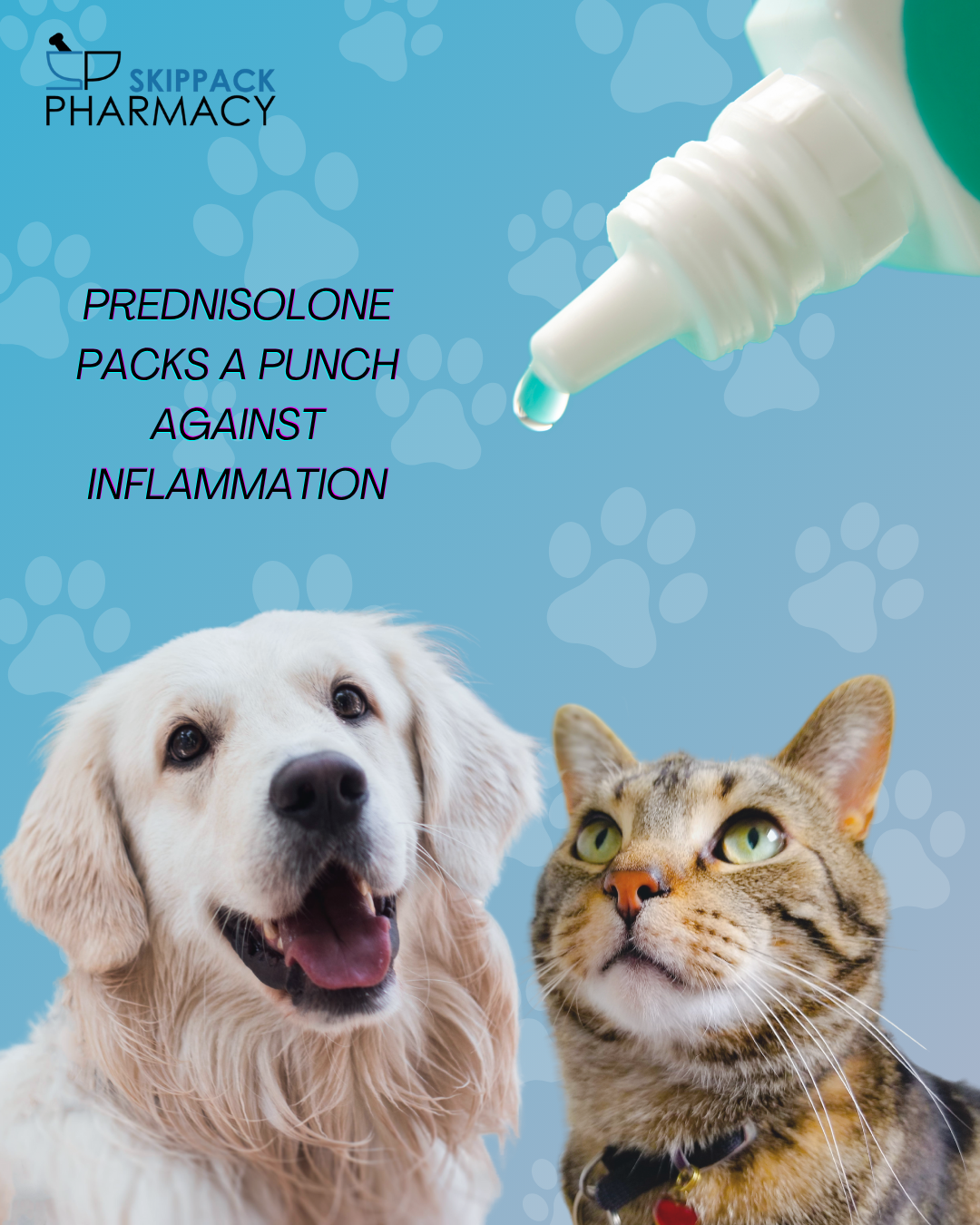
- Pet/Vet
-
by Skippack Pharmacy
What Are Prednisolone Eye Drops?
Prednisolone is a corticosteroid medication commonly used in veterinary ophthalmology to reduce inflammation in the eyes. When formulated as eye drops or ophthalmic suspensions, prednisolone works directly at the site of irritation to calm inflammation, relieve redness, and reduce swelling. This makes it a valuable treatment for a variety of eye conditions in pets, including uveitis (inflammation of the eye’s middle layer), conjunctivitis, keratitis, and post-surgical inflammation.
How Corticosteroids Work in the Eye
Inflammation in the eye can occur for many reasons—injury, infection, autoimmune reactions, or underlying diseases. Prednisolone helps by suppressing the immune system’s overactive response that causes tissue damage and discomfort. It blocks the release of inflammatory chemicals and reduces the activity of white blood cells, helping to restore a healthier, calmer ocular environment. As a result, pets often experience fast relief from pain, squinting, and discharge when treated appropriately.
Benefits of Using Prednisolone Ophthalmic Suspensions
Prednisolone eye drops are especially effective when inflammation is occurring within the deeper tissues of the eye, such as the anterior chamber. Unlike non-steroidal anti-inflammatory drugs (NSAIDs), corticosteroids like prednisolone penetrate deeper into ocular tissues, making them more suitable for certain conditions. At Skippack Pharmacy, we have compounded Prednisolone Acetate in an aqueous vehicle at 1.25% and 1.5% concentrations, offering customized solutions for pets that need precise dosing or preservative-free formulations.
Important Risks and Precautions
While corticosteroids are powerful tools in eye care, they must be used with caution. One of the primary risks associated with prednisolone eye drops is that they can worsen or mask active infections, especially viral or fungal infections. For example, using prednisolone in a pet with undiagnosed corneal ulcers or feline herpesvirus could delay healing or even lead to vision loss. Due to these risks, prednisolone should always be prescribed by a veterinarian after a thorough eye exam. It’s important to avoid using leftover drops from a past illness, as what helped one condition could harm another.
When to Avoid Steroid Eye Drops
Prednisolone eye drops are not appropriate in cases where there is a corneal ulcer, active infection, or unconfirmed diagnosis. Veterinarians will often perform a fluorescein stain test to rule out corneal damage before prescribing corticosteroids. If your pet is showing signs of squinting, excessive tearing, pawing at the eye, or light sensitivity, it’s best to seek veterinary care right away rather than self-treating.
Conclusion
Prednisolone eye drops are a valuable part of ophthalmic care for pets, but like all medications, they require careful oversight and proper use. At Skippack Pharmacy, we’re committed to supporting veterinarians and pet owners with high-quality, sterile ophthalmic suspensions tailored to your pet’s individual needs. By understanding how corticosteroids work—and when they should or shouldn’t be used—you can help ensure safer, more effective treatment for your furry companion.

